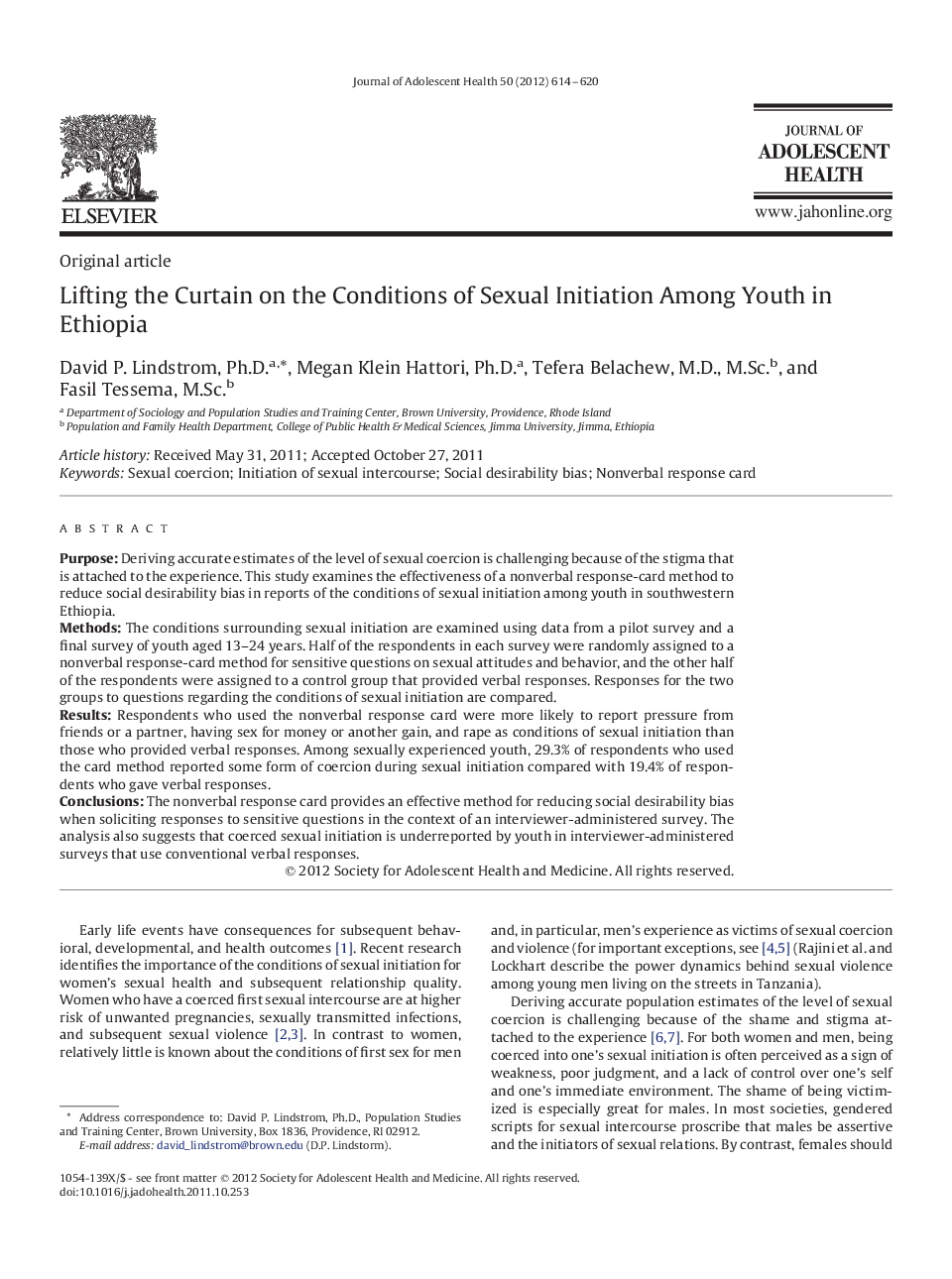| کد مقاله | کد نشریه | سال انتشار | مقاله انگلیسی | نسخه تمام متن |
|---|---|---|---|---|
| 1079461 | 1486694 | 2012 | 7 صفحه PDF | دانلود رایگان |

PurposeDeriving accurate estimates of the level of sexual coercion is challenging because of the stigma that is attached to the experience. This study examines the effectiveness of a nonverbal response-card method to reduce social desirability bias in reports of the conditions of sexual initiation among youth in southwestern Ethiopia.MethodsThe conditions surrounding sexual initiation are examined using data from a pilot survey and a final survey of youth aged 13–24 years. Half of the respondents in each survey were randomly assigned to a nonverbal response-card method for sensitive questions on sexual attitudes and behavior, and the other half of the respondents were assigned to a control group that provided verbal responses. Responses for the two groups to questions regarding the conditions of sexual initiation are compared.ResultsRespondents who used the nonverbal response card were more likely to report pressure from friends or a partner, having sex for money or another gain, and rape as conditions of sexual initiation than those who provided verbal responses. Among sexually experienced youth, 29.3% of respondents who used the card method reported some form of coercion during sexual initiation compared with 19.4% of respondents who gave verbal responses.ConclusionsThe nonverbal response card provides an effective method for reducing social desirability bias when soliciting responses to sensitive questions in the context of an interviewer-administered survey. The analysis also suggests that coerced sexual initiation is underreported by youth in interviewer-administered surveys that use conventional verbal responses.
Journal: Journal of Adolescent Health - Volume 50, Issue 6, June 2012, Pages 614–620